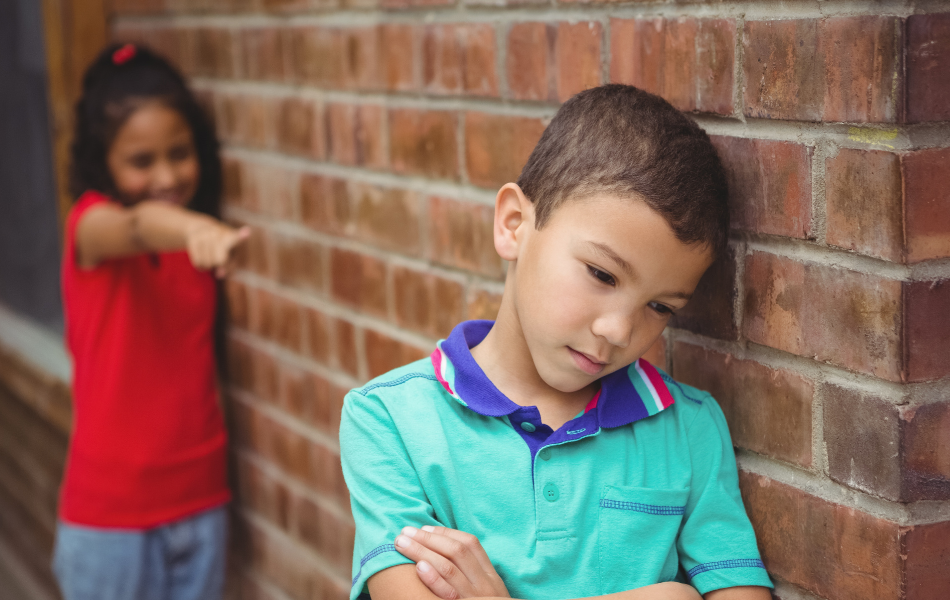Discover the transformative power of emotional intelligence through inspiring success stories, overcoming challenges, and nurturing resilience in children
Emotional literacy, often termed emotional intelligence, is the ability to recognize, understand, and effectively manage one’s own emotions, as well as to empathize with and respond appropriately to the emotions of others. It involves being aware of how emotions shape our thoughts, behaviors, and interactions, and possessing the skills to navigate them constructively.
A. Definition of Emotional Literacy
Emotional literacy encompasses a wide range of competencies, including self-awareness, self-regulation, empathy, social skills, and relationship management. It goes beyond simply being able to identify emotions; it involves the capacity to express feelings healthily, cope with stress, communicate effectively, and build meaningful connections with others.
B. Importance of Emotional Literacy in Children
Emotional literacy plays a crucial role in the holistic development of children, shaping their social, academic, and personal success. It provides them with the tools to navigate the complexities of human relationships, cope with challenges, and thrive in various life situations. Here are some key reasons why emotional literacy is vital for children:
- Enhanced Social Skills: Children with strong emotional literacy are better equipped to understand the feelings and perspectives of others, fostering empathy, cooperation, and conflict resolution in their interactions.
- Improved Mental Health: Emotional literacy empowers children to recognize and manage their emotions effectively, reducing the risk of anxiety, depression, and other mental health issues. It equips them with coping strategies to deal with stress and adversity.
- Academic Success: Emotional intelligence positively impacts academic performance by promoting focus, motivation, and resilience. Emotionally literate children are better able to regulate their emotions and maintain concentration, leading to improved learning outcomes.
- Healthy Relationships: Developing emotional literacy early in life sets the foundation for healthy relationships in adulthood. Children learn to communicate assertively, resolve conflicts constructively, and build trust and intimacy in their interactions with others.
C. Overview of the Blog Content
In this blog, we will delve into real-life stories and case studies that illustrate the transformative power of emotional literacy in children. Through inspiring success stories, we will explore how emotional intelligence has helped children overcome obstacles, navigate challenges, and achieve personal growth and fulfillment. Additionally, we will examine the challenges faced by families in nurturing emotional literacy and strategies for overcoming them. By shedding light on the importance of emotional literacy and sharing practical insights, this blog aims to empower parents to foster emotional intelligence in the children they nurture.
Understanding Emotional Literacy

What is Emotional Literacy?
Emotional literacy refers to the ability to recognize, understand, and effectively manage one’s emotions and the emotions of others. It involves developing a deep awareness of one’s feelings, thoughts, and behaviors, as well as empathy towards the experiences of others. Emotional literacy enables individuals to navigate social interactions, cope with stress, and make responsible decisions based on emotional intelligence.
Components of Emotional Literacy
- Self-Awareness: The foundation of emotional literacy, self-awareness involves recognizing and understanding one’s own emotions, triggers, and patterns of behavior. It requires introspection and mindfulness to accurately identify and label feelings.
- Self-Regulation: This component involves the ability to manage and regulate one’s emotions healthily and adaptively. It includes techniques for managing stress, controlling impulses, and maintaining emotional balance even in challenging situations.
- Empathy: Empathy is the capacity to understand and share the feelings of others. It involves perspective-taking, active listening, and recognizing the emotions and needs of others without judgment. Empathy fosters deeper connections and promotes compassionate communication.
- Social Skills: Social skills encompass the ability to navigate social interactions, communicate effectively, and build positive relationships with others. It includes skills such as assertiveness, conflict resolution, cooperation, and leadership, which are essential for healthy social functioning.
- Relationship Management: Relationship management involves using emotional intelligence to cultivate and maintain healthy, meaningful relationships. It includes skills such as building trust, resolving conflicts, expressing appreciation, and adapting to the needs of others.
Benefits of Emotional Literacy in Children
- Enhanced Social Competence: Children with strong emotional literacy skills are better equipped to navigate social situations, form positive relationships, and collaborate effectively with peers and adults.
- Improved Academic Performance: Emotional literacy positively influences academic success by enhancing attention, concentration, and problem-solving abilities. It fosters a positive attitude towards learning and resilience in the face of academic challenges.
- Better Mental Health: Emotional literacy equips children with the tools to manage stress, regulate their emotions, and cope with adversity effectively. It reduces the risk of anxiety, depression, and other mental health issues by promoting emotional resilience and well-being.
- Conflict Resolution Skills: Emotionally literate Children are better able to resolve conflicts peacefully, communicate assertively, and negotiate compromise solutions. They develop empathy and perspective-taking skills, which are essential for resolving conflicts constructively.
- Increased Empathy and Compassion: Emotional literacy nurtures empathy and compassion towards others, fostering a sense of connectedness and belonging in children. It promotes kindness, tolerance, and respect for diversity, laying the groundwork for a more inclusive and harmonious society.
Success Stories of Children with Strong Emotional Literacy
Story 1: Overcoming Adversity with Emotional Resilience

Introduction to the child
Meet Sarah, a 10-year-old girl with a remarkable capacity for emotional intelligence. Sarah is empathetic, perceptive, and deeply attuned to her own feelings as well as those of others. From a young age, Sarah demonstrated a natural inclination towards emotional literacy, often comforting her friends during times of distress and navigating conflicts with maturity beyond her years.
Challenges faced by the child and family
Despite Sarah’s innate emotional intelligence, her family faced significant challenges due to her father’s sudden illness. The emotional toll of witnessing her father’s declining health took a toll on Sarah, leading to feelings of anxiety, sadness, and uncertainty within the family. Coping with the upheaval in their lives while supporting Sarah’s emotional well-being presented a daunting challenge for her family.
How emotional literacy helped the child overcome challenges
Sarah’s strong emotional literacy became a beacon of strength and resilience during this turbulent period. Through open communication and supportive guidance from her parents, Sarah learned to express her emotions openly and seek comfort when needed. She used her empathy and understanding to support her family members through their own struggles, fostering a sense of unity and resilience within the family.
Achievements and impact of emotional literacy on the child’s life
Despite the adversity, Sarah’s emotional literacy enabled her to navigate the challenges with grace and resilience. She developed coping strategies to manage her own emotions and provided invaluable support to her family during their time of need.
As her father recovered and the family adjusted to their new normal, Sarah’s emotional intelligence continued to serve her well, enabling her to thrive academically, socially, and emotionally. Sarah’s story is a testament to the transformative power of emotional literacy in overcoming adversity and building a resilient, thriving family unit.
Story 2: Finding Strength Through Emotional Intelligence

Introduction to the child
Meet Alex, a 12-year-old boy with a remarkable aptitude for emotional intelligence. Since a young age, Alex has exhibited a keen sensitivity to the emotions of others, coupled with a deep understanding of his own feelings. He is known among his peers for his empathetic nature and ability to offer support and encouragement during difficult times.
Challenges faced by the child and family
Alex’s family encountered a significant challenge when his parents went through a tumultuous divorce. The breakdown of their marriage created a chaotic and emotionally charged environment for Alex and his siblings. Coping with the upheaval of their family dynamics, navigating conflicting emotions, and adjusting to the changes in their living situation presented profound challenges for Alex and his family.
How emotional literacy helped the child overcome challenges
Alex’s well-developed emotional literacy became a source of strength and resilience during this turbulent period. He was able to recognize and process his own feelings of sadness, confusion, and anger, while also providing support to his siblings as they grappled with their own emotions. Through open communication and empathy, Alex and his family were able to navigate the complexities of their situation with greater understanding and compassion.
Achievements and impact of emotional literacy on the child’s life
Despite the challenges of his parents’ divorce, Alex’s emotional intelligence enabled him to emerge from the experience with newfound resilience and maturity. He developed coping strategies to manage stress and navigate conflicts constructively, laying the groundwork for healthier relationships and personal growth.
As Alex continued to mature, his emotional literacy continued to serve him well, fostering deep connections with others and empowering him to face life’s challenges with courage and compassion. Alex’s story is a testament to the transformative power of emotional intelligence in overcoming adversity and building a strong foundation for emotional well-being.
Story 3: A Journey of Self-Discovery Through Emotional Intelligence

Introduction to the child
Say hello to Jake, an 11-year-old boy with a remarkable knack for emotional intelligence. Jake has always been deeply in tune with his own emotions, possessing a rare insight into his feelings and motivations. He approaches life with a sense of curiosity and empathy, eager to understand the complexities of human emotions.
Challenges faced by the child and family
Jake’s family faced a significant challenge when his parents decided to relocate to a new city due to job opportunities. The prospect of leaving behind his friends, school, and familiar surroundings filled Jake with a mix of excitement and apprehension. Adjusting to a new environment, making new friends, and coping with the upheaval of the move presented daunting challenges for Jake and his family.
How emotional literacy helped the child overcome challenges
Jake’s strong emotional literacy became a valuable asset as he navigated the challenges of relocation. He was able to articulate his feelings of excitement and anxiety, allowing him to process his emotions and adapt to the changes with greater ease. Jake approached the move with an open mind and a positive attitude, embracing the opportunity for growth and new experiences.
Achievements and impact of emotional literacy on the child’s life
Despite the initial challenges of relocation, Jake’s emotional intelligence enabled him to thrive in his new environment. He quickly formed connections with his peers, drawing on his empathy and communication skills to forge meaningful friendships. Jake’s ability to navigate change with resilience and optimism not only helped him adjust to his new surroundings but also laid the foundation for personal growth and self-discovery.
As Jake settled into his new life, his emotional literacy continued to empower him, fostering confidence, adaptability, and a deep sense of belonging. Jake’s story is a testament to the transformative power of emotional intelligence in navigating life’s transitions and embracing new opportunities for growth and fulfillment.
Challenges Faced by Families in Nurturing Emotional Literacy

Lack of Awareness and Education
One of the primary challenges families encounter in nurturing emotional literacy is the lack of awareness and education about its importance and how to cultivate it. Many parents may not fully understand the significance of emotional intelligence or how to effectively nurture it in their children. Without proper guidance or resources, they may struggle to identify and address their child’s emotional needs, leading to missed opportunities for growth and development.
External Influences and Peer Pressure
External influences and peer pressure can pose significant challenges to the development of emotional literacy in children. In today’s digital age, children are constantly exposed to a wide range of influences, including media, social media, and peer interactions, which can shape their perceptions and behaviors. Negative peer pressure and societal norms may discourage emotional expression or vulnerability, making it difficult for children to develop healthy emotional regulation skills and authentic self-awareness.
Cultural and Societal Stigma
Cultural and societal stigma surrounding emotions can also hinder the nurturing of emotional literacy within families. In some cultures, there may be expectations or norms that discourage the open expression of emotions, particularly those perceived as negative or vulnerable. Families may feel pressure to conform to these cultural expectations, limiting opportunities for emotional exploration and growth. Overcoming cultural stigma requires a shift toward promoting emotional openness and acceptance within families and communities.
Parental Stress and Mental Health Issues
Parental stress and mental health issues can significantly impact the family’s ability to nurture emotional literacy in children. High levels of stress, anxiety, or depression within the family can create an emotionally tense environment, making it challenging for parents to model healthy emotional expression and regulation. Additionally, parents struggling with their own mental health may find it difficult to provide the support and guidance necessary for their child’s emotional development. Addressing parental stress and mental health issues is essential for creating a nurturing and supportive family environment conducive to the cultivation of emotional literacy in children.
| Recommended Reading from Books that can be Purchased on Amazon From Chaos to Connection: How parenting with emotional intelligence raises kind, confident, resilient kids |
Strategies for Overcoming Challenges and Nurturing Emotional Literacy

Building a Supportive Environment
Creating a supportive environment is essential for nurturing emotional literacy in children. Families can foster emotional intelligence by providing a safe and nurturing space where children feel comfortable expressing their feelings and exploring their emotions without judgment. This involves validating their emotions, offering encouragement and support, and modeling healthy emotional expression through open communication and empathy.
Communication and Active Listening
Effective communication and active listening are fundamental skills for nurturing emotional literacy in children. Families can encourage open and honest communication by actively listening to their children’s thoughts and feelings, validating their experiences, and responding with empathy and understanding. By fostering a culture of open communication, families can strengthen their emotional bonds and create opportunities for meaningful conversations about emotions and feelings.
Teaching Emotional Regulation Techniques
Teaching children emotional regulation techniques is crucial for helping them manage their emotions effectively. Families can teach children practical strategies for identifying and coping with different emotions, such as deep breathing exercises, mindfulness practices, and positive self-talk. By equipping children with tools to regulate their emotions, families empower them to navigate challenges and stressors with resilience and confidence.
| For further guidance on teaching kids emotional literacy, you may find my blog on Teaching Kids Emotional Literacy helpful. |
Seeking Professional Help and Support Groups
In some cases, families may benefit from seeking professional help and support groups to overcome challenges and nurture emotional literacy in children. Mental health professionals, such as therapists or counselors, can provide guidance and support for families dealing with complex emotional issues or mental health concerns. Additionally, support groups offer a valuable opportunity for families to connect with others facing similar challenges, share experiences, and learn from each other’s perspectives.
| Recommended Workbook that can be Purchased on Amazon The Self-Regulation Workbook for Kids |
| For further insights on overcoming challenges in the development of emotional literacy in children, read my blog on Challenges in the Development of Emotional Literacy in Kids helpful. |
By implementing these strategies and seeking support when needed, families can overcome challenges and cultivate a nurturing environment that promotes emotional literacy and well-being in children. Through consistent support, guidance, and encouragement, families play a vital role in helping children develop the skills and resilience they need to navigate life’s emotional complexities with confidence and compassion.
Conclusion

Nurturing emotional literacy in children is paramount for their holistic development. By fostering a supportive environment, promoting open communication, teaching effective regulation techniques, and seeking professional support when needed, families can empower children to navigate life’s challenges with resilience, empathy, and emotional intelligence.
| Other Articles Which Can Assist Emotional Literacy, Intelligence, and Cognition Differences Building Emotional Literacy in Kids |
Questions that People Ask

- “How can emotional intelligence help in the schoolroom?”
- Emotional intelligence fosters effective communication, conflict resolution, and leadership skills, enhancing workplace relationships and productivity.
- “What are some examples of celebrities with high emotional intelligence?”
- Celebrities like Oprah Winfrey and Barack Obama are often cited as examples of individuals who demonstrate high emotional intelligence in their public personas and interactions.
- “Are there any studies linking emotional intelligence to academic success?”
- Yes, research suggests that students with higher levels of emotional intelligence tend to have better academic performance, including improved grades, attendance, and problem-solving skills.
- “Can emotional intelligence be learned, or is it innate?”
- While some aspects of emotional intelligence may be innate, research indicates that it can also be developed and improved through practice, self-awareness, and social-emotional learning programs.
- “How does emotional intelligence impact mental health?”
- Emotional intelligence plays a significant role in mental health by promoting resilience, stress management, and healthy coping strategies, reducing the risk of anxiety, depression, and other mental health issues.
Please LIKE this article and SUBSCRIBE. Feel free to comment and let us know how you are coping with your child or children’s emotional literacy.
Recent Posts
Explore permissive parenting’s impact on emotional development, its strengths, hidden risks, and how to build loving boundaries that raise resilient children. Every parent wants a peaceful home....
Discover how the Commander Style of authoritarian parenting shapes emotional development, and learn research-based ways to balance firm structure with empathy. Every child’s emotional...

